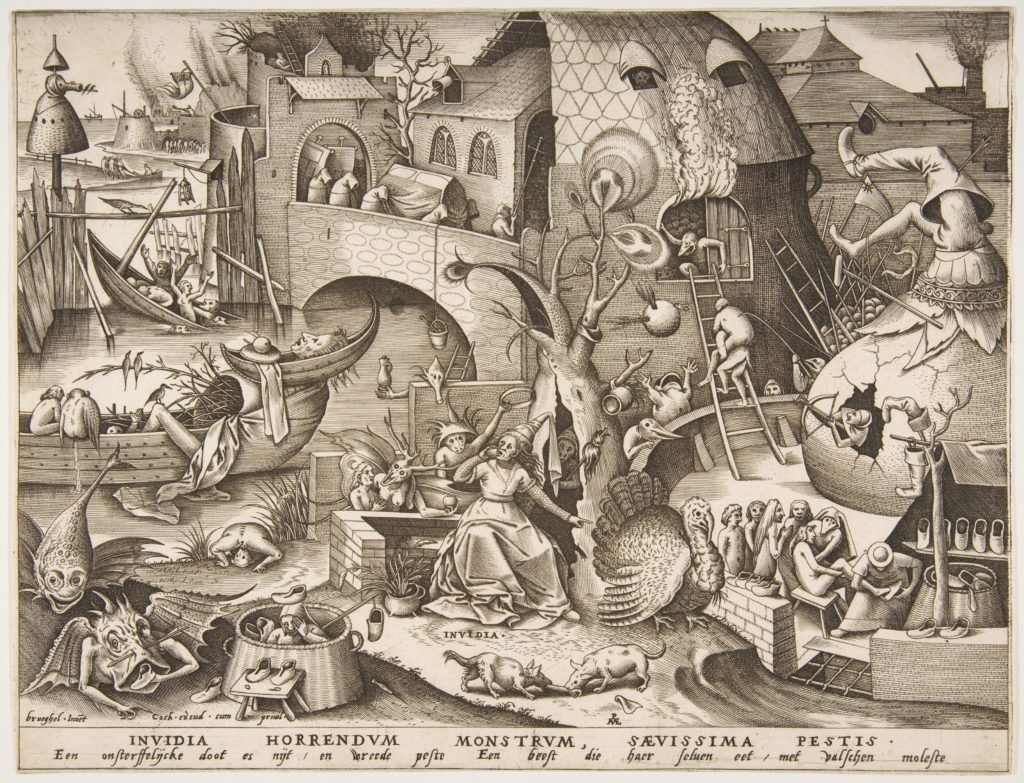
The Seven Deadly Sins
The seven deadly sins in Greek mythology is a fascinating and complex topic that offers insight into the values and beliefs of the ancient Greeks. These sins, which include hubris, avarice, envy, wrath, lust, gluttony, and sloth, are still relevant today and serve as a reminder of the dangers of allowing our own negative emotions and behaviors to consume us. Let's delve into each of the seven sins and explore their origins and meanings in the context of Greek mythology.
Hubris
Hubris, also known as excessive pride or arrogance, was considered the deadliest of all the sins in Greek mythology. It was believed that hubris was the root cause of all other sins, and those who were guilty of it were often punished severely. In the myth of Narcissus, for example, the handsome young man was punished for his hubris by being doomed to fall in love with his own reflection in a pool of water.
Avarice
Avarice, or greed, was another deadly sin in Greek mythology. Those who were guilty of avarice were believed to be consumed by their desire for wealth and material possessions, and were often depicted as miserly or selfish. In the myth of Midas, for example, the king was granted the power to turn anything he touched into gold, but soon discovered that his newfound wealth came at a great cost.
Envy
Envy, or jealousy, was also considered a deadly sin in Greek mythology. Those who were guilty of envy were believed to be consumed by feelings of resentment and bitterness towards others who had something they themselves desired. In the myth of Apollo and Marsyas, for example, the god Apollo becomes jealous of the mortal Marsyas's skill at playing the flute, and eventually punishes him for it.
Wrath
Wrath, or anger, was another deadly sin in Greek mythology. Those who were guilty of wrath were believed to be consumed by their own rage, and were often depicted as violent or vengeful. In the myth of Medea, for example, the sorceress is consumed by her anger towards her husband Jason, and ultimately takes revenge on him in a brutal and violent manner.
Lust
Lust, or excessive desire, was also considered a deadly sin in Greek mythology. Those who were guilty of lust were believed to be consumed by their own sexual desires, and were often depicted as promiscuous or hedonistic. In the myth of Zeus and Europa, for example, the god Zeus takes the form of a bull in order to seduce the mortal Europa, ultimately leading to her pregnancy and the birth of their son, Minos.
Gluttony
Gluttony, or overindulgence, was another deadly sin in Greek mythology. Those who were guilty of gluttony were believed to be consumed by their own appetites, and were often depicted as overweight or greedy. In the myth of Tantalus, for example, the mortal king is punished for his gluttony by being condemned to stand in a pool of water beneath a fruit tree, but never being able to eat or drink.
Sloth
Sloth, or laziness, was the final deadly sin in Greek mythology. Those who were guilty of sloth were believed to be consumed by their own lack of ambition or drive, and were often depicted as indolent or apathetic. In the myth of Sisyphus, for example, the mortal king is punished for his sloth by being condemned to roll a large boulder up a hill for all eternity, only to have it roll back down again.
The Seven Sins
These sins are still relevant today, and serve as a reminder of the dangers of allowing our own pride, greed, envy, anger, lust, gluttony, and sloth to consume us. By understanding and confronting these deadly sins, we can strive to live more virtuous and fulfilling lives.
The Seven Deadly Sins Video
The Seven Deadly Sins Q&A
Link/Cite The Seven Deadly Sins Page
Written by: The Editors of GreekMythology.com. GreekMythology.com editors write, review and revise subject areas in which they have extensive knowledge based on their working experience or advanced studies.
For MLA style citation use: GreekMythology.com, The Editors of Website. "The Seven Deadly Sins". GreekMythology.com Website, 02 Dec. 2022, https://www.greekmythology.com/Myths/Popular/The_Seven_Deadly_Sins/the_seven_deadly_sins.html. Accessed 23 April 2024.
